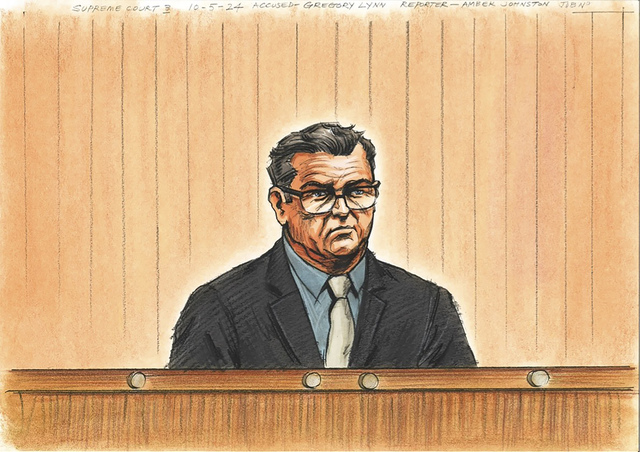By Tara Cosoleto, AAP
Twelve jurors will officially begin deliberating on whether former airline pilot Greg Lynn is guilty of the double murder of campers Russell Hill and Carol Clay.
The 57-year-old man faced a five-week trial where he denied killing the pair in Victoria’s alpine region in March 2020, but admitted removing their bodies and burning their remains.
He has been on trial in the Supreme Court in Melbourne since 14 May after pleading not guilty to two counts of murder.
Lynn claimed the two deaths were accidental.
The jury will begin deliberating at 10am on Monday 17 June.
All jurors must unanimously agree on whether Lynn is guilty or not guilty of the two separate murder charges, before the verdicts can be delivered.
If one juror disagrees, they will not be able to reach a verdict and a fresh trial could be ordered.
The jury will only consider the two murder charges against Lynn as the alternative offences of manslaughter were thrown out.
Lynn told the jury Mrs Clay was shot in the head as he and Mr Hill struggled over his shotgun.
He claimed Mr Hill then came at him with a knife and was fatally stabbed in the chest during a second struggle.
Lynn admitted he carried out “despicable” actions after the deaths, telling the jury he panicked and destroyed evidence because he feared his career would be over.
But prosecutor Daniel Porceddu told the jury Lynn’s story was a work of fiction and that he had “obliterated all evidence” to conceal the murders.
Justice Michael Croucher on Friday instructed the jury that Mr Porceddu had breached the legal rule of fairness several times in his closing arguments.
The judge pointed to 16 instances where Mr Porceddu made claims that had not been put to Lynn or a ballistics expert.
The directions were the final thing jurors heard before they were sent off to begin deliberations.
Justice Croucher reminded the jury there was no time limit to deliberations, although the verdicts needed to be unanimous.








